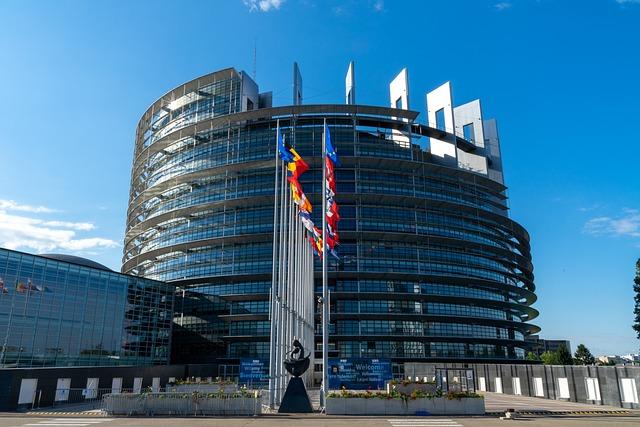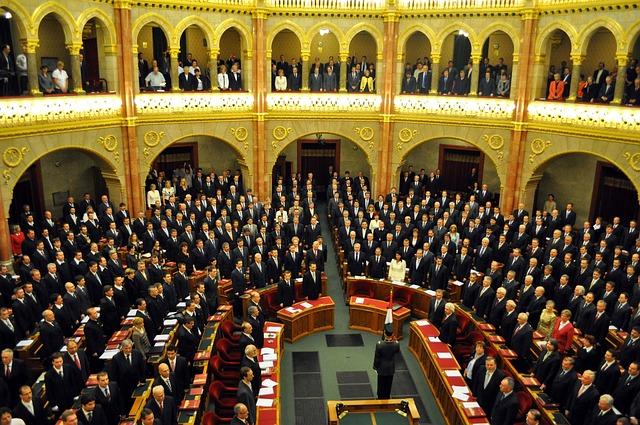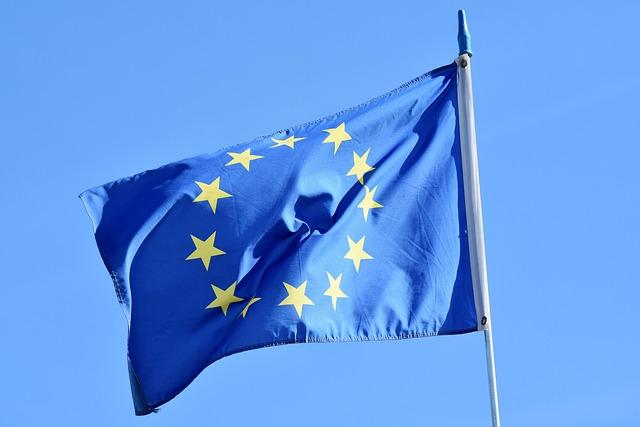Hungarys Strategic Shift: Orban advocates for Direct Negotiations with Russia
In a major departure from standard EU insurance policies, Prime Minister Viktor Orbán has publicly referred to as for Hungary to interact in direct negotiations with Russia. This transfer displays a broader technique aimed toward recalibrating Hungary’s overseas coverage,positioning the nation as an middleman fairly than a participant within the EU’s collective stance in opposition to Moscow. Orbán’s feedback come as tensions in Europe persist,with many member states standing agency on sanctions and diplomatic isolation methods relating to Russia. He argues that fostering dialogue might open avenues for power safety and financial cooperation that may profit hungary straight.
Orbán’s advocacy for unmediated talks highlights a rising rift throughout the EU, significantly relating to its perceived dealing with of relations with Russia. Critics of the EU’s summit declarations stress that such a hardline stance would possibly foreclose alternatives for pragmatic options and fewer confrontational engagements. Key arguments in favor of Orbán’s place embrace:
Financial Advantages: Potential for decreased power costs and provide stability.Political Leverage: Establishing Hungary as a pivotal negotiating participant in Jap European affairs.Regional Stability: Decreasing tensions between NATO companions and Russia may stop escalation.
These viewpoints underline a philosophical divide throughout the EU on how greatest to reply to exterior pressures and challenges, with Hungary seemingly charting a path that many different member states might discover contentious. As Orbán insists that diplomacy may provide sensible benefits, the dialogue about Hungary’s positioning continues to evolve amidst a backdrop of advanced geopolitical dynamics.
EU Summit Dynamics: Opposition to Collective Declaration amid Diverging Views

because the latest EU summit approached, tensions flared over Hungary’s Prime Minister Viktor Orbán’s insistence on initiating direct dialogue with Russia. This stance starkly contrasts with the broader European Union consensus, which has leaned in the direction of a united entrance in opposition to moscow amid ongoing geopolitical tensions. Orbán’s name for direct negotiations is rooted in his perception that diplomatic engagement may pave the way in which for resolving vital points, resembling power safety and financial stability which were strained by the continued battle. His place has sparked discussions concerning the implications of diverging views throughout the EU, significantly regarding how member states can align their overseas coverage methods whereas dealing with exterior pressures.
Opposition to a collective declaration throughout the summit underscores the widening rift amongst EU member states. Some leaders fear that unilateral approaches may undermine the EU’s credibility and cohesion. Key causes for this hesitance embrace:
Issues about weakening the EU’s unified stance on Ukraine.Concern that direct talks with Russia may embolden Moscow’s aggressive ways.The problem of sustaining solidarity in coverage whereas accommodating divergent nationwide pursuits.
This disagreement highlights the advanced dynamics at play throughout the EU, the place balancing nationwide sovereignty in opposition to frequent objectives continues to be a fragile activity, prompting many to query what the long run holds for European unity in overseas affairs.
The Implications of Orbans Stance: Euro-Russian Relations at a Crossroads

Prime Minister viktor Orbán’s latest push for direct negotiations with Russia marks a major deviation from the prevailing sentiment throughout the European Union. as he challenges the EU’s collective stance—significantly within the context of a possible summit declaration—this transfer raises questions concerning the unity and coherence of Euro-Russian relations. Orbán argues that dialogue is important for resolving excellent points, significantly power safety and commerce. By advocating for this strategy, he appears to prioritize Hungary’s nationwide pursuits over broader EU methods, which may complicate communal efforts in addressing geopolitical tensions.
The implications of Hungary’s pivot could possibly be profound for each EU diplomacy and regional stability. This divergence might encourage different member states to reassess their very own positions on Russia, resulting in a fractured response to Moscow’s actions. Key concerns embrace:
Power Dependency: Hungary’s reliance on Russian power provides highlights the advanced interaction between power wants and geopolitical aspirations.Geopolitical Alignment: Orbán’s stance might embolden neighboring nations to both align with or distance themselves from Russian affect.EU Cohesion: Divergent views on Russia may threaten the EU’s collective bargaining energy in future negotiations.
The stability between nationwide pursuits and EU solidarity stays delicate. Orbán’s initiative underscores the difficulties that come up when particular person member states prioritize bilateral relationships over collective motion. To additional illustrate these dynamics, the next desk outlines the positions of choose EU nations relating to their relations with Russia:
CountryPosition on RussiaKey ConcernsHungaryPro-DialogueEnergy safety, tradePolandPro-SanctionsGeopolitical aggressionGermanyBalanced ApproachEnergy transitionFranceEuropean CohesionDiplomatic negotiations
Assessing Hungarys Overseas Coverage: Balancing Nationwide Pursuits with EU Obligations

In latest developments, Hungary’s overseas coverage underneath Prime Minister Viktor Orbán has showcased a strategic departure from typical EU consensus, significantly relating to relations with Russia. Whereas many EU member states are advocating for a united entrance in opposition to moscow,Orbán has proposed direct negotiations with Russian leaders,emphasizing the necessity for pragmatic diplomacy over ideological stances. This strategy alerts Hungary’s dedication to its nationwide pursuits, prioritizing financial ties and power safety over collective EU positions. The federal government’s insistence on sovereign decision-making contextually frames their actions as obligatory for the soundness and prosperity of Hungary, regardless of potential pushback from Brussels.
Orbán’s place has led to a notable rift throughout the European Union, as he brazenly opposes sure collective declarations from EU summits aimed toward addressing the continued battle in Ukraine. This has raised considerations about Hungary’s alignment with core EU values and its tasks as a member state. Critics argue that such public dissent undermines EU unity and will embolden adversarial nations. Although, proponents of Orbán’s stance contend that it displays a obligatory recalibration of Hungary’s overseas coverage that prioritizes direct engagement and financial advantages, together with:
Power Safety: Strengthening ties with Russia for fuel provides.Financial Ties: Enhancing commerce relations with Jap nations.Nationwide Sovereignty: Defending hungary’s proper to pursue its personal overseas coverage.AspectEU consensusHungary’s PositionRelations with RussiaStrong condemnationDirect negotiationsNational InterestCommon approachPriority for HungaryEnergy SupplyDiversification focusReliance on Russia
Suggestions for EU Management: Navigating Inner Disunity and Exterior Pressures

Amidst the ever-evolving panorama of geopolitical tensions, EU management should undertake a proactive and unified strategy that reconciles inside divisions whereas addressing urgent exterior challenges.To take action, it’s essential for leaders to interact in open dialogue about diverging nationwide pursuits, significantly relating to relations with Russia. Hungary’s Prime Minister Viktor Orbán’s push for direct negotiations with Moscow alerts a major coverage divergence that necessitates pressing consideration. A clearer technique must be constructed round collaborative diplomacy that respects every member state’s stance whereas sustaining a coherent EU place on vital issues resembling power safety and army alliances.
Furthermore, because the EU grapples with exterior pressures from Russia and different world gamers, fostering a tradition of consensus-based choice making can be important. The EU may gain advantage from the institution of devoted boards the place member states can voice their considerations and negotiate compromises in a structured format. Efficient suggestions would possibly embrace:
Encouraging bilateral talks: Selling discussions between nations to bridge variations on contentious points.Implementing joint activity forces: Creating specialised activity forces to deal with particular challenges associated to overseas coverage, commerce, and safety.Growing a standard dialogue technique: Guaranteeing a unified message is conveyed to exterior entities to strengthen the EU’s negotiating energy.
By prioritizing unity and strategic collaboration, the EU can improve its place on the worldwide stage. The desk under outlines key insights on member states’ positions relating to Russia, which may function a basis for additional dialogue:
Member StatePosition on RussiaKey ConcernsHungarySupport for direct talksEnergy dependencePolandFirm oppositionSecurity threatsGermanyCautious engagementTrade stability
The Way forward for Hungary-Russia Relations: Potential Situations and Outcomes

As Hungary’s prime Minister Viktor Orbán advocates for direct talks with Russia, the geopolitical panorama of Hungary-russia relations appears poised for a possible shift. This strategy stems from up to date assessments of regional power wants, financial cooperation, and Hungary’s quest for sustaining sovereignty throughout the framework of the European Union.Orbán’s stance diverges sharply from the broader EU technique aimed toward isolating Russia, a tactic that he argues may jeopardize Hungary’s nationwide pursuits, particularly regarding power safety and financial stability.
The implications of this pivot might manifest in a number of eventualities, every carrying distinct outcomes:
Elevated Financial Collaboration: Continued negotiations might result in enhanced commerce agreements and power provides, positioning Hungary as a mediator in East-West relations.Potential EU Tensions: Orbán’s actions may exacerbate inside divisions throughout the EU, difficult its unified stance in opposition to Russia and sparking debates about member states’ autonomy in overseas coverage.Safety Issues: The pursuit of nearer ties with russia might elevate alarms amongst NATO allies, maybe impacting Hungary’s safety commitments and alliances.Home Political Ramifications: orbán’s embrace of Russia may polarize Hungarian residents, influencing upcoming elections and altering the political panorama.
For instance the shifting dynamics, think about the next desk that summarizes key elements influencing Hungary-Russia relations:
FactorCurrent StatusPotential ImpactEnergy DependencySignificant reliance on Russian gasIncreased negotiation energy or vulnerabilityEU RelationsFractured unity on overseas policyFueling dissent amongst member statesDefense CommitmentsTight NATO obligationsRisk of strained alliances
These potential eventualities paint a posh image of Hungary’s future interactions with Russia, which can both fortify or fracture the prevailing geopolitical cloth in Europe.The approaching months can be essential in figuring out whether or not direct communication results in sustainable partnerships or entrenched divides.
In Conclusion
As Hungary’s Prime Minister Viktor Orbán requires direct dialogue with Russia and brazenly challenges the latest EU summit declaration,the implications of his stance reverberate past the borders of Hungary. His strategy underscores a rising divide throughout the European Union relating to relations with Moscow, significantly within the context of ongoing tensions stemming from the battle in Ukraine.As EU leaders grapple with a unified strategic response, Orbán’s divergence raises vital questions on the way forward for collective decision-making throughout the bloc and displays Hungary’s distinctive geopolitical positioning. Because the state of affairs develops, all eyes can be on whether or not Orbán’s advocacy for direct engagement will affect broader EU insurance policies or deepen rifts amongst member states. The evolving dynamics of Hungary’s overseas coverage proceed to play a pivotal position in shaping the continent’s strategy to one among its most urgent challenges.
Source link : https://europ.info/2025/03/02/hungary-2/hungarys-orban-pushes-direct-russia-talks-opposes-eu-summit-declaration-reuters/
Writer : Ethan Riley
Publish date : 2025-03-02 11:15:00
Copyright for syndicated content material belongs to the linked Source.


